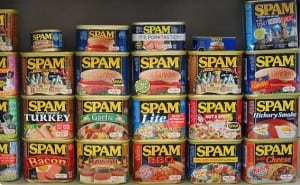
 Slogging through another day of unanswered emails? If you're a PR pro, it's a daily fact of life—one that can eat away at your soul, nibble by nibble.
Slogging through another day of unanswered emails? If you're a PR pro, it's a daily fact of life—one that can eat away at your soul, nibble by nibble.
You've read the innumerable tips pieces, you've learned from the veteran practitioners. You're studying and following reporters' beats and articles. Your pitches are focused and refined for a particular journalist. Your subject line tells the journalist why she or he should care. Your copy is jargon and hype free, and it tells the journalist how your product or service affects the lives of the journalist's readers. And no one responds to you. I mean, no one.
Chances are it isn't you, it's the spam filters. Your emails elicit no responses because they often—or usually—end up in a dead zone.
This news might leave you feeling more powerless than ever. Content isn't king after all, you might say. But knowing these common reasons why your email pitches are getting blocked by spam filters might help you recover your belief in your ability to control your fate—and give your pitches a fighting chance. (Please keep in mind that these reasons why spam filters block emails are not absolute—they refer just to tendencies of spam filters.)
1. Your email pitch includes attachments. Spam filters are more likely to block emails with attachments, especially .zip files.
2. Your email includes URLs. Filters will sometimes flag emails with URLs as spam. If a journalist is interested in your pitch, you can always follow up with links.
3. You have in-line images in your email signature. The image in your in-line signature (e.g. company logo) will sometimes wind up as an attachment (see reason 1).
4. Bulk emails have been sent to multiple emails at the same domain at the same time. If you or someone in your company has sent an email to, say, 15 people using the same domain at Time Inc. at the same time, all of your company's emails might be marked permanently as spam. Once your company's email domain has been added to another company's spam list, you have to then try to convince that company's spam filter provider (Barracuda or Spamhaus, for instance) to take your domain off that list. Sadly, one department's bulk emails sometimes torpedo the chances of individual emails from people within the same company of reaching their targets.
5. Someone in your company has sent out a rogue bulk email, marking all subsequent emails from that domain as spam. It's best to leave bulk emails to the professionals—those who understand the nuances of bulk emails and know better than to send too many to the same domain at the same time.
6. You used Chinese characters in your email.
Follow Steve Goldstein: @SGoldsteinAI

Do “Click here to update your email preferences or unsubscribe.” includes as links that would result in spam?